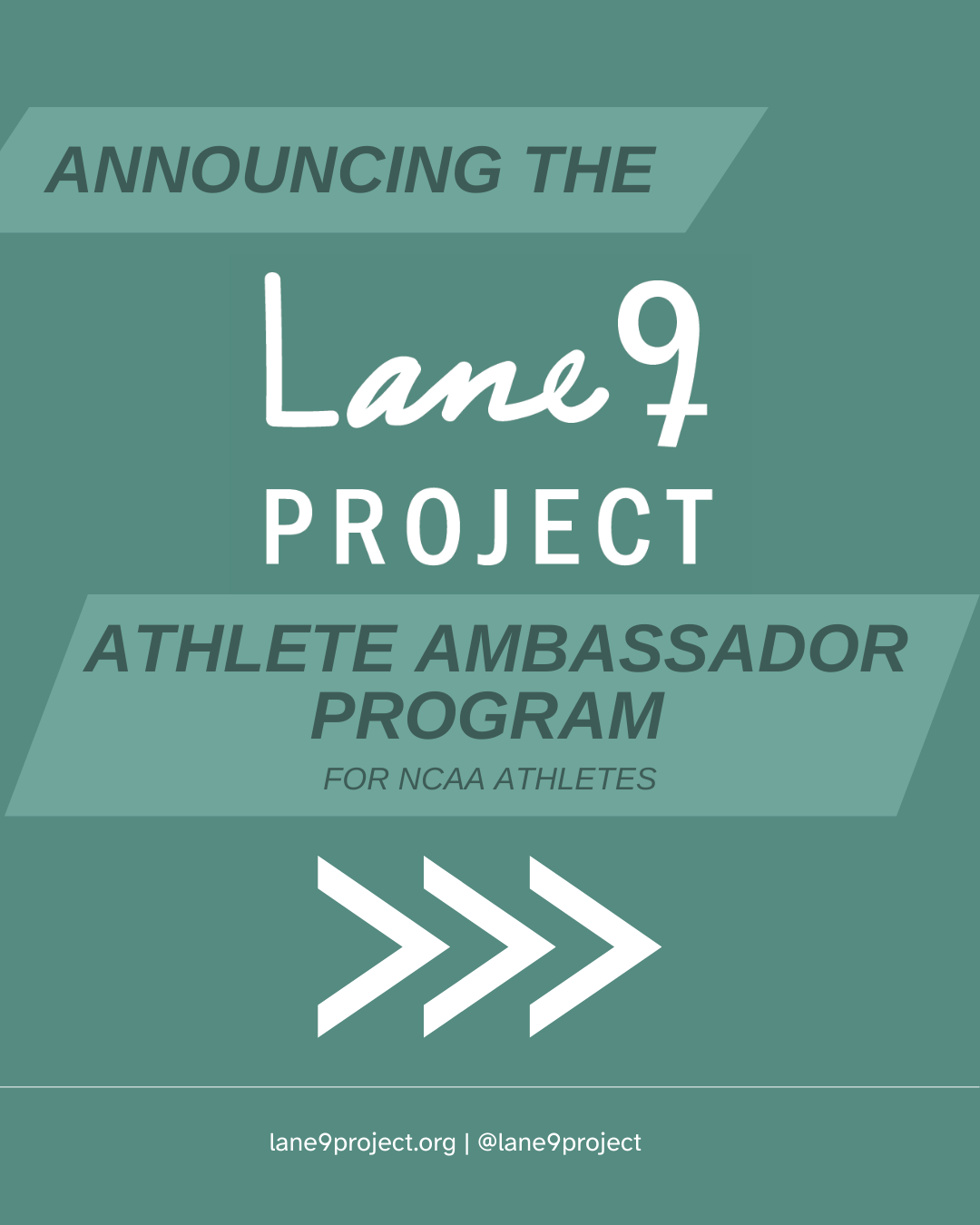Announcing the Lane 9 Project Athlete Ambassador Program!
The Lane 9 Athlete Ambassador Program empowers collegiate athletes to lead health advocacy and foster open, supportive team cultures within NCAA programs.
We’re currently accepting applications for the fall 2025 Lane 9 Project Athlete Ambassador Program. If you’re a collegiate athlete participating in a fall sport, we encourage you to apply today! If you’re not an athlete but you know one, please forward this email to them!
When I was a collegiate runner, I struggled with RED-S, but I didn’t know it at the time.
What I did know was that I had poor body image, restricted my eating, and didn’t get a regular menstrual cycle. At the time, I didn’t think it was a problem. I believed that in order to be the fastest version of myself, I also needed to be the thinnest version of myself. I thought it was engaging in the necessary behaviors to help me get there. No one told me otherwise.
Despite my dedication to becoming as small as possible in an effort to get faster, the opposite happened. I didn’t race well and I developed pretty intense race anxiety. I doubled down on my efforts only for my performance, and my mental health, to plummet. Running fast gave me value and I wasn’t running fast. By the middle of my sophomore year, I was injured.
When I was diagnosed with a stress fracture in my foot as a sophomore, I wasn’t supported.
I had run on it for so long I could no longer stand to bear weight. The pain kept me up at night. I was told it was in my head.
During my time off to heal, my mental health deteriorated even further. My whole identity was running. My self-worth was earned through 800 meter personal bests. I was miserable.
Nobody talked to me about fueling or menstrual health.
Nobody shared the risk factors for stress fractures with me. Nobody asked “are you ok, really?” When I got injured, I was on my own, left to guide my 19 year old self back to health and implement my own return-to-running protocol over the summer with only the help of coach Google.
I felt completely alone.
It wasn’t until years after college, when we started Lane 9, that I learned other teammates of mine had shared many of my experiences. Teammates , even some I was close to, reached out to say they had been struggling too. We just weren’t talking about it. We didn’t know how and we didn’t even know we should.
Struggling in silence allowed us each to believe the problem was ourselves rather than a deeply flawed system.
When someone asks “what support did you need as a collegiate athlete?”, the answer is simple: I needed someone to start a conversation.
I didn’t need coaches or teammates to be experts in all things nutrition, eating disorders, menstrual health, or mental health, I just needed someone to talk about it. Simply starting the conversation would have made room for a different narrative. One where me and my body weren’t the problem. One where I could seek support and chart a new, healthier and happier, path forward.
We created the Lane 9 Project Athlete Ambassador Program to start that conversation.
Our goal is to empower athletes with the information, resources, and tools needed to support their teams. The expectation is not that our athlete ambassadors are experts on female athlete health, but instead are a safe space to begin the crucial conversations we need to have to improve athlete health and well-being.
Our athlete ambassadors will engage in workshops with the Lane 9 team, connect with other ambassadors, hosts team conversations, and have access to a digital resource library. The Fall 2025 Lane 9 Project Athlete Ambassador Program will run from mid-August through late-November.
For full details on what a Lane 9 Project Ambassador will do, please review this link. When you’re ready, apply here! If you have any questions, email us at lane9project@gmail.com or shoot us a DM on Instagram @lane9project!






